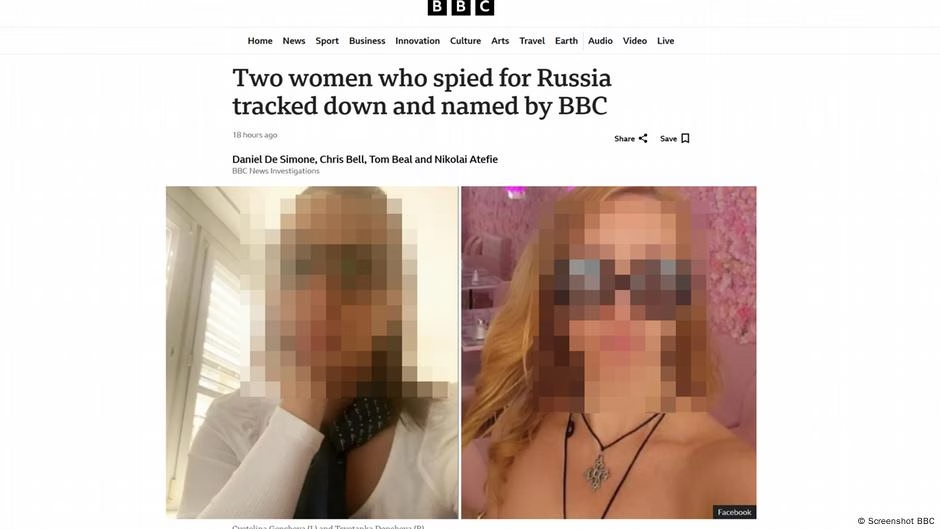About a decade ago, Tsvetanka D., a Bulgarian citizen, moved to the Austrian capital, Vienna. For some time, she worked as a cleaner, but it’s unclear whether she had any other jobs after that.
Regardless of what she did, it appears she had plenty of spare time since she was highly active on social media. Over the years, her posts against COVID vaccines and supporting Russia’s policies and Austria’s far-right Freedom Party (FPÖ) increased in frequency.
“A woman who constantly posted nonsense on Facebook — pro-Putin, pro-Russia… that kind of thing,” says Plamen B., a Bulgarian national who briefly employed Tsvetanka D. in a cleaning company in Vienna back in 2015.
“But she was more like a typically confused person, one of those really susceptible to propaganda,” he added.
However, there was nothing typical about Tsvetanka D. On March 24, Austria’s Directorate State Protection and Intelligence Service (DNS) revealed that Tsvetanka D. was, in fact, employed, but not in a regular job: she was working as a Russian agent.
Tsvetanka D. was tasked with spreading Russian disinformation in Austria. She posted stickers around Vienna that were meant to appear pro-Ukrainian but actually included Nazi symbols, aiming to spread the Russian disinformation that Ukrainians are Nazis. She was also charged with spreading similar disinformation online and admitted to the Austrian authorities that her most active period was in 2022, the year Russia began its full-scale invasion of Ukraine.
Tsvetanka D. was also tasked with surveillance of targets such as Omar Haijawi-Pirchner, head of the DNS, investigative journalist Christo Grozev, and Anna Thalhammer, editor-in-chief of the Austrian weekly magazine “profil,” which is known for its investigative journalism. Thalhammer received a phone call from the authority responsible for the protection of the constitution, informing her that there was a plan to steal her laptop and cell phone and take them to Moscow.
Tsvetanka D. was also supposed to film investigative journalist Christo Grozev, who was on the Russian Interior Ministry’s wanted list in 2022. To do this, she rented an apartment in Vienna opposite the location of Grozev’s residence.
It is believed that Tsvetanka D. was recruited when the COVID-19 pandemic began in 2020, as she began spreading incorrect and misleading information about the virus and, later on, about vaccines.
Bulgaria is the EU country with the lowest COVID vaccination rate, partly due to the spread of misinformation and general mistrust of vaccines. This likely caught the attention of a Russian spy cell operating out of the UK, which consisted of Bulgarians living in the UK. Six of them were convicted of carrying out espionage operations in early March.
All the convicted Bulgarians worked for Jan Marsalek, an Austrian national and former chief operating officer of the collapsed German payments processing company Wirecard. Marsalek is presumed to have fled to Moscow and coordinated espionage and disinformation operations in Europe from there.
Christo Grozev was the primary target of these operations. According to information from London, there were plans to abduct and even kill him. Tsvetanka D. was supposed to help with all this, along with another Bulgarian woman, Cvetelina G., who worked at the airport in Sofia, tracking how and when journalists and Russian dissidents entered and left the country.
Russian secret services tend to recruit seemingly “normal” people. Both Tsvetanka D. and Vanya G., another member of the London-based spy cell, claim they did not know what they were doing. However, journalist Anna Thalhammer does not believe Tsvetanka D.’s claim of ignorance.
The members of the London-based cell are currently waiting for the court’s final judgment. Tsvetanka D. is currently in Austria and is no longer in custody. However, nothing seems to have changed for Cvetelina G., as at the time of publication, the Bulgarian authorities had made no comment on the matter.
It remains to be seen whether Marsalek’s spy network has collapsed. According to Anna Thalhammer, the authorities believe there may be other cells operating. It seems Bulgarians are often involved in Russian spy networks, as “these are not well-trained spies, but criminals following orders,” says Thalhammer. Bulgarian names regularly pop up in Russian spy networks, indicating cooperation between criminal networks in Bulgaria and Russia.
Source: https://www.dw.com/en/how-a-bulgarian-cleaning-lady-became-a-russian-spy/a-72103935?maca=en-rss-en-all-1573-rdf







